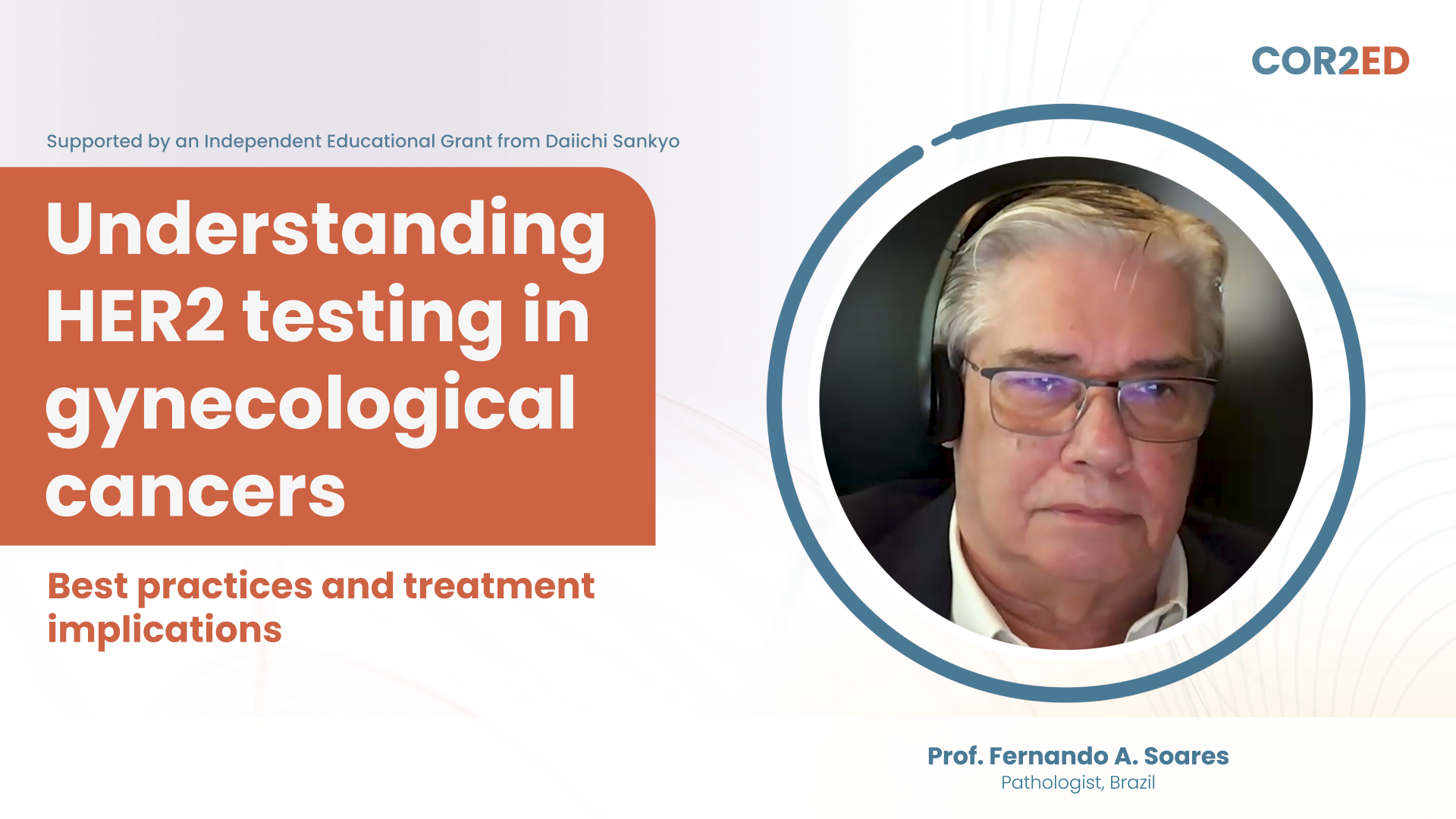In this animated video, GU cancer genomics expert Dr Alexander Wyatt shares recommendations from the guidelines, and his best tips for optimising precision oncology in prostate cancer.
Multi-gene germline and somatic testing is required for the identification of gene alterations in advanced prostate cancer. Both tissue and liquid biopsy (ctDNA) can be used for somatic testing, but it’s important for HCPs to know when to use liquid biopsy and how to conserve the quality of tissue samples.
Dr Wyatt addresses these questions and highlights other key points, including:
- Common genomic alterations and implications in prostate cancer
- When to order biomarker testing
- Samples that can be used for somatic and germline testing
- Potential challenges and recommendations to reduce the limitations of testing and interpreting results
Clinical takeaways
- It is important to consider that different types of samples are needed for somatic and germline testing
- Genomic biomarker testing is required to help with treatment decision making and for understanding inherited cancer risk
- Next-generation sequencing of multiple genes is the gold-standard method for both germline and tumour (somatic) testing in prostate cancer
- Alterations in HRR genes and MMR pathway genes in advanced prostate cancer can predict response to targeted therapies






 Downloadable
Downloadable  20 MIN
20 MIN
 Feb 2026
Feb 2026 






